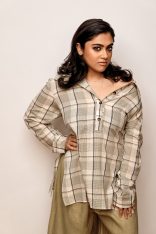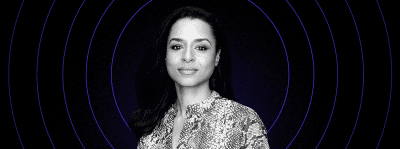Hulu’s ‘Plan B’ puts a comedic spin on birth control access (and representation)
Brooklynite Kuhoo Verma stars in a new teen buddy flick about limited access to emergency contraception—and one wild road trip
Directed by Natalie Morales, Hulu’s new original movie “Plan B” flips the script on the raunchy teen buddy road trip comedy, and in so doing delivers a powerful message about emergency access to birth control (without getting too preachy). On paper, the movie sounds a bit like a female “Harold and Kumar,” perhaps because it was made by part of the same team. It also takes a few queues from “Superbad,” “Thelma and Louise” … and Planned Parenthood.
After a drunken hookup and a condom mishap, 17-year-old Sunny (Brooklynite Kuhoo Verma) is in desperate need of emergency contraception. She and her best friend Lupe (Victoria Moroles) are forced to embark on a roadtrip from hell across South Dakota to acquire the morning after pill.
“Let’s get the plan B pill!” Lupe urges at the outset.
“Is there an alternative?” asks Sunny.
“You mean … a plan B?”
If only it were so simple. As the hours slip by—Sunny has a narrow window in a pill will be effective—the two buddies face a cascading comedy of errors. From a pharmacist’s evoking of the conscience clause (which allows healthcare providers to conscientiously object to provide care), to the shutdown of the nearest Planned Parenthood center, to an encounter with a shady dealer, there are no shortage of obstacles standing between Sunny and that pill.
We’re not in Brooklyn anymore
If Sunny lived in Brooklyn, the pill would be easily attainable: Go to the pharmacy, pay about $50, no prescription needed. Or, even better, visit one of the city’s sexual health clinics for free or low cost services.
But Sunny lives in South Dakota, where laws surrounding access to birth control and other reproductive healthcare are very different. At her first stop, the pharmacy, she is met with disapproval from the pharmacist, who invokes the conscience clause and refuses to give Sunny the pill.
In six states—Arizona, Arkansas, Georgia, Idaho, Mississippi, and South Dakota—pharmacists are allowed to refuse services on religious or moral grounds. This is a tactic used to erode access to reproductive healthcare, including contraception and abortion services.
“A lot of people think about laws and rules around sexual reproductive health care as like just being about abortion but there’s just so much more to it,” says Emily Bisek, regional director of communications at Planned Parenthood North Central States. “It impacts emergency contraception, and impacts birth control, and even impacts who our staff are allowed to give condoms to—they’re not supposed to provide those to minors without parental consent.”
South Dakota is one of six states that only has one Planned Parenthood. No in-state doctors are willing and able to provide abortion services, so for the past 25 years, Planned Parenthood has had to fly-in out of state clinicians to Sioux Falls.
“[Not having access to reproductive healthcare] can change the whole course of someone’s life,” says Jade, a clinician at the Sioux Falls clinic who declined to be identified beyond that. “It can change their ability to go to college or take new career opportunities, it can affect a lot of decisions that people will make.”
At Planned Parenthood, Jade helps with routine healthcare like annual exams and pap smears. She also provides counseling for horomonal trans care as well as abortion support services.


Kuhoo Verma—star of the movie as anxious and endearing Sunny—moved to East Williamsburg in January of 2020.
“I was on the L train, and I was like, oh my god, all of you are hot, and also my age,” Verma said. “I could hang with all of you.”
Plan B is Verma’s first starring role film. She had a supporting role in “The Big Sick,” the 2017 romcom co-written by and starring Kumail Nanjani, but her scenes were limited. So working on “Plan B” was a “crash course,” she says.
For inspiration for the role, she referred back to her middle school journals, likening Sunny’s character to a younger version of herself. She feels like a pioneer in terms of Indian female representation on screen — a position she referred to as a “pinch-me moment.”
“I do want young Indian girls to like, be able to be horny and not feel sexual shame and that and feel like it’s completely fucking normal to want these things,” says Verma. “And more than that, I want to encourage parents to watch this. It can really unleash a really important conversation between Indian parents—parents of any culture—and their children, and how to kind of de-stigmatize conversation around sex and reproductive health.”
You might also like 


























